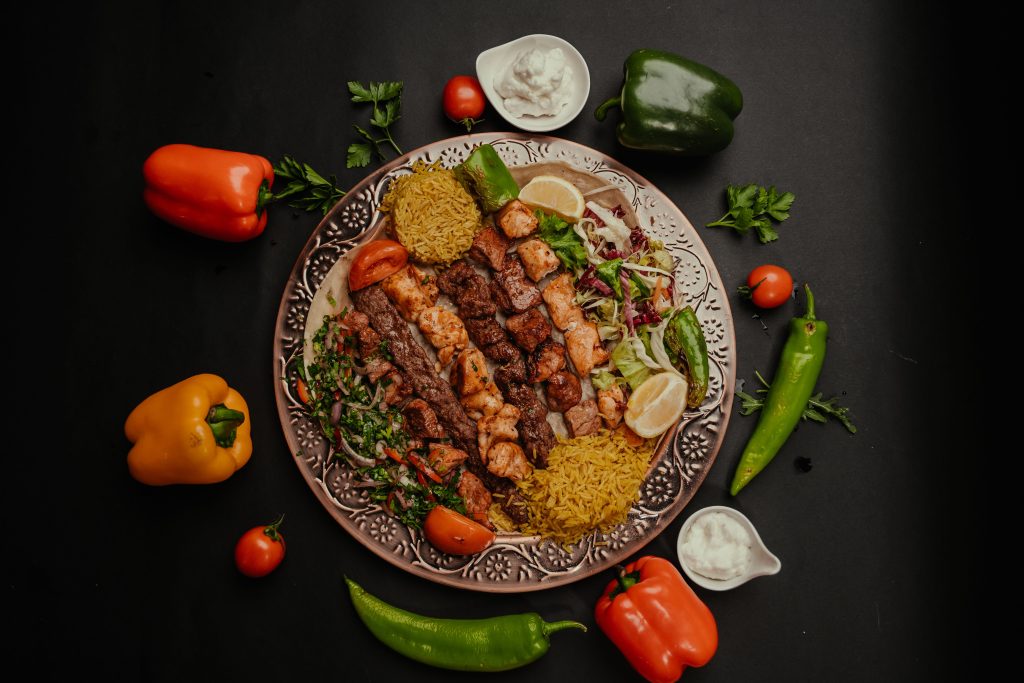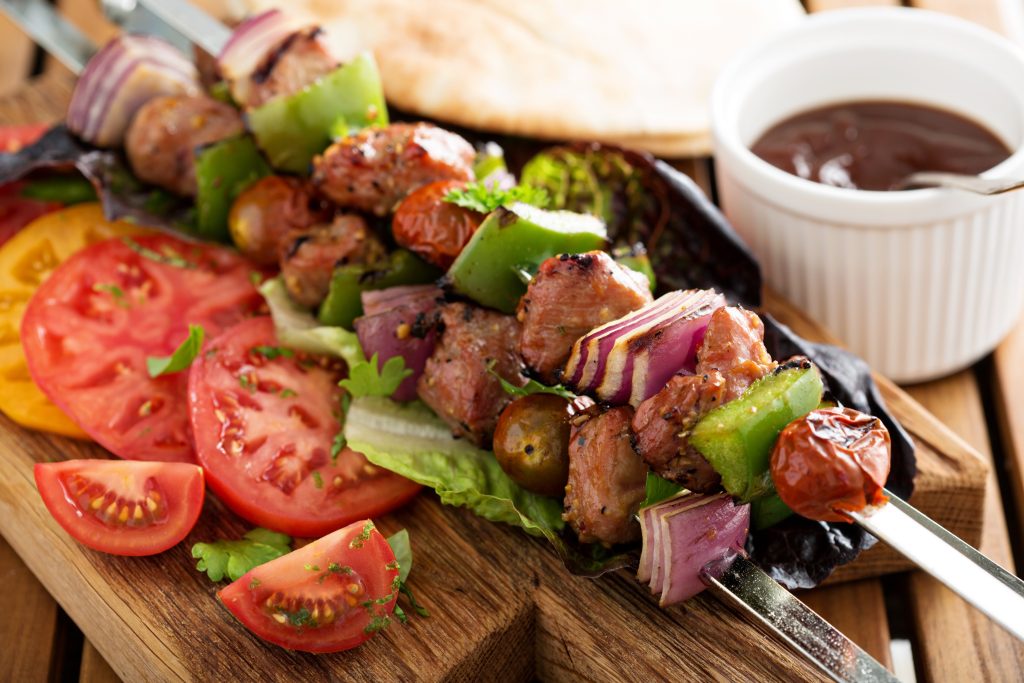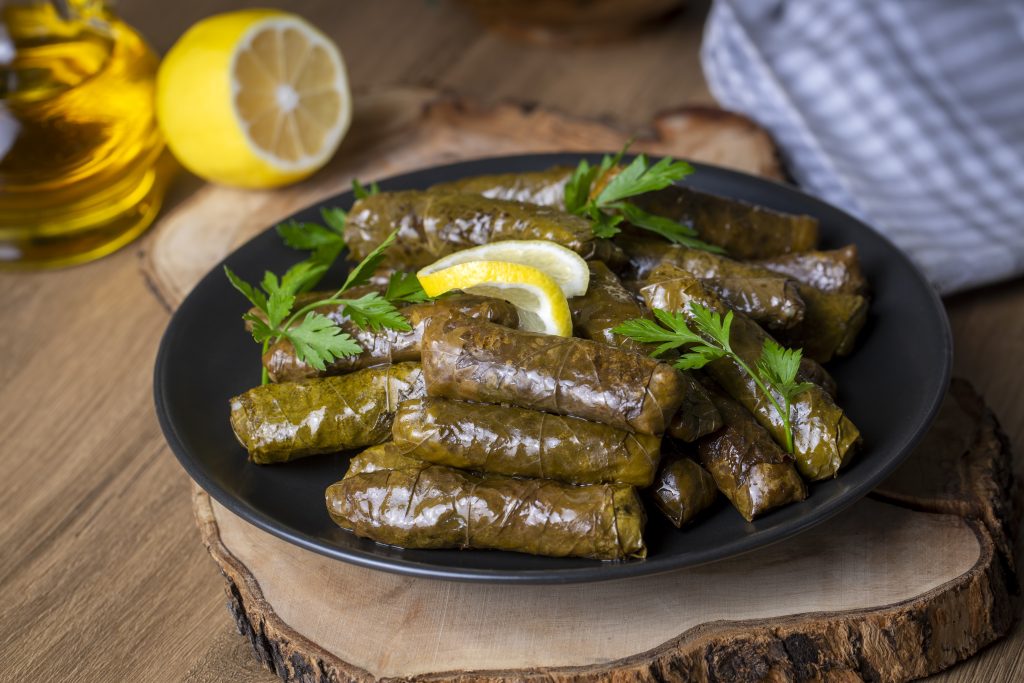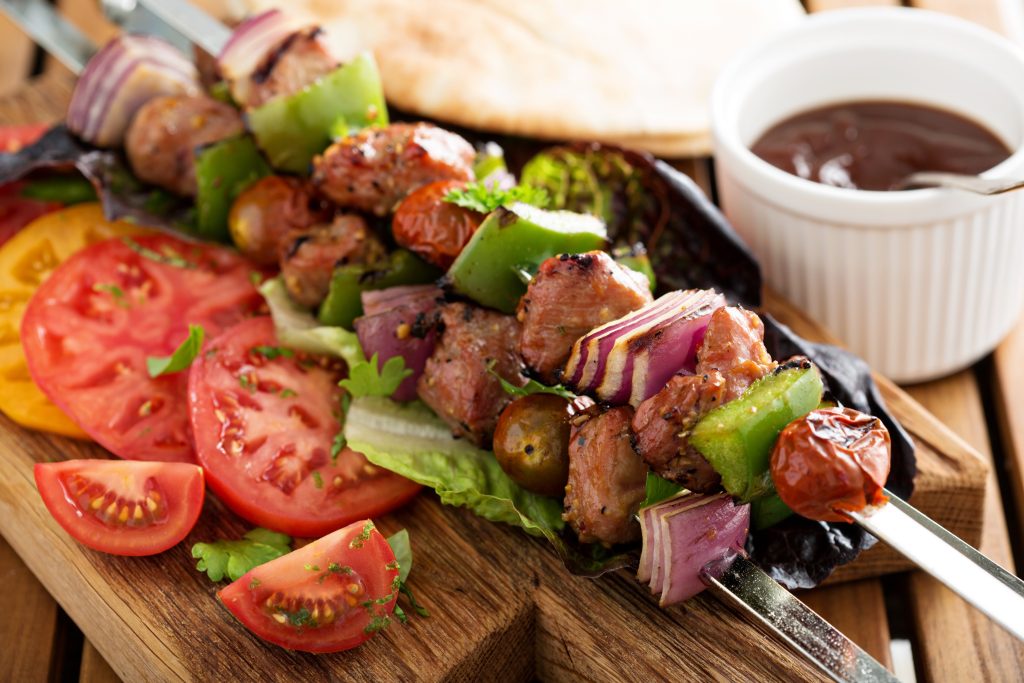
The Mediterranean diet has long been celebrated for its numerous health benefits, hailed as one of the world’s most nutritious eating patterns.
While the Mediterranean region encompasses a variety of countries, each with its own culinary traditions, this blog will focus on the Middle Eastern perspective of the Mediterranean diet, highlighting the delicious and nutritious dishes from countries such as Turkey, Lebanon, Syria, and Iraq. These countries bring a unique flavor and approach to the diet, emphasizing a balance of fiber, protein, and carbohydrates that contribute to a healthy lifestyle.
The Essence of the Mediterranean Diet
The Mediterranean diet is not just about the food itself but the lifestyle and approach to eating. It prioritizes whole foods, fresh ingredients, and balanced meals. The Middle Eastern interpretation of the Mediterranean diet places emphasis on the following key components:

- Fiber-Rich Vegetables and Salads
Vegetables are a cornerstone of the Mediterranean diet, providing essential vitamins, minerals, and dietary fiber. In Middle Eastern cuisine, fiber is found abundantly in salads and mezze dishes, such as tabbouleh, a vibrant salad made with parsley, mint, tomatoes, and bulgur, dressed with lemon juice and olive oil. These salads not only add flavor and color to the meal but also aid in digestion and help maintain a healthy weight. - High-Quality Protein Sources
Protein is an essential part of the Mediterranean diet, and Middle Eastern cuisine showcases a variety of high-quality meats such as chicken, beef, and lamb. Dishes like kebab and tikka feature large pieces of marinated and grilled meats, providing lean protein without the fillers often found in processed foods like burgers. This focus on pure, unadulterated meat ensures the full nutritional benefits are retained. - Carbohydrates from Bread and Rice
Carbohydrates are an important energy source in the Mediterranean diet, with bread and rice being staples in Middle Eastern meals. Hummus and baba ghanoush are often enjoyed with fresh, warm bread, while meats are commonly served with rice or bulgur. These carbohydrates provide a steady source of energy, complementing the proteins and vegetables in the meal. - The Role of Olive Oil
Olive oil is an essential ingredient in Middle Eastern cooking, known for its health benefits, including heart health and anti-inflammatory properties. It is used generously in salads, mezze dishes, and as a finishing touch on many dishes. The presence of olive oil not only enhances the flavor but also provides healthy fats that are crucial for maintaining good health.

Health Benefits of the Middle Eastern Mediterranean Diet
The Middle Eastern Mediterranean diet is renowned for its health benefits, rooted in a balance of nutrient-rich foods and wholesome ingredients. This diet emphasizes the consumption of fresh vegetables, lean proteins, whole grains, and healthy fats, particularly olive oil, which together contribute to a variety of positive health outcomes. Rich in antioxidants, fiber, and essential nutrients, the Middle Eastern Mediterranean diet supports heart health, aids in weight management, and reduces the risk of chronic diseases. By focusing on whole foods and traditional culinary practices, this diet not only promotes physical well-being but also encourages a sustainable and enjoyable way of eating. The combination of flavors and textures found in Middle Eastern dishes makes this diet as delicious as it is nutritious, offering a holistic approach to maintaining a healthy lifestyle.
1. Heart Health
One of the most significant benefits of the Mediterranean diet is its positive impact on heart health. The use of olive oil, nuts, and fatty acids found in meats contributes to lowering bad cholesterol levels and reducing the risk of heart disease. The fiber from vegetables and whole grains also aids in maintaining healthy blood pressure.
2. Weight Management
The focus on whole foods and balanced meals helps in maintaining a healthy weight. The fiber in vegetables and legumes creates a sense of fullness, preventing overeating, while lean proteins and healthy fats provide sustained energy levels throughout the day.
3. Improved Digestion
Fiber-rich foods like tabbouleh and other salads promote healthy digestion by supporting the growth of beneficial gut bacteria. The combination of fiber and healthy fats also aids in the absorption of essential nutrients.
4. Reduced Risk of Chronic Diseases
The Mediterranean diet, with its emphasis on anti-inflammatory foods such as olive oil and nuts, helps reduce the risk of chronic diseases, including diabetes, cancer, and Alzheimer’s disease. The antioxidants in fresh fruits and vegetables protect cells from damage, promoting overall health and longevity.

Exploring Key Dishes in the Middle Eastern Mediterranean Diet
The Middle Eastern Mediterranean diet is celebrated for its diverse array of dishes that are not only flavorful but also packed with nutrients. These dishes emphasize fresh ingredients, vibrant spices, and balanced nutrition, reflecting the rich culinary traditions of countries like Turkey, Lebanon, Syria, and Iraq. Here are some of the key dishes that exemplify the healthful and delicious qualities of this diet:
1. Kebab
Kebab, a quintessential Middle Eastern dish, consists of skewered and grilled meats marinated in a blend of spices and herbs. Whether made from chicken, beef, or lamb, kebabs offer a rich source of protein and essential nutrients. The use of spices such as cumin, coriander, and sumac not only enhances the flavor but also provides additional health benefits, such as improved digestion and antioxidant properties.
2. Tikka
Tikka, similar to kebab, involves marinating and grilling meats, often accompanied by vegetables. The focus on high-quality cuts of meat ensures that the dish remains lean and nutritious. Tikka is often enjoyed with a side of yogurt or tahini sauce, adding a dose of probiotics and calcium to the meal.

3. Middle Eastern Salads
Salads in Middle Eastern cuisine are vibrant and full of flavor. Tabbouleh is a standout example, with its fresh ingredients and tangy dressing. Another popular salad is fattoush, made with mixed greens, tomatoes, cucumbers, radishes, and crispy pieces of pita bread, all tossed in a zesty sumac dressing. These salads provide a wealth of vitamins, minerals, and antioxidants.
4. Mezze Dishes
Mezze, a selection of small dishes served as appetizers or side dishes, is a beloved aspect of Middle Eastern dining. Dishes like hummus, baba ghanoush, and muhammara are not only delicious but also nutritious, providing a balance of fiber, protein, and healthy fats. Olive oil is a common topping for these dishes, adding flavor and health benefits.

Yalangi
Yalangi, also known as dolma or stuffed grape leaves, is a beloved dish in Middle Eastern cuisine that embodies the essence of the Mediterranean diet. This dish features tender grape leaves wrapped around a flavorful mixture of rice, herbs, and spices, often enhanced with pine nuts and raisins for a subtle sweetness. Unlike other variations of stuffed grape leaves that include meat, yalangi is traditionally vegetarian, making it a perfect addition to a mezze spread. Drizzled with olive oil and a squeeze of lemon juice, this dish captures the vibrant flavors and healthy ingredients characteristic of the Mediterranean way of eating.
The Importance of Olive Oil in Middle Eastern Cuisine
Olive oil is a cornerstone of the Mediterranean diet, revered for its flavor and health benefits. It is used in cooking, dressings, and as a finishing touch on many dishes. Rich in monounsaturated fats and antioxidants, olive oil is known to support heart health, reduce inflammation, and improve overall well-being.
Interesting Facts About Olive Oil
- Olive oil has been a staple in Mediterranean diets for thousands of years, dating back to ancient civilizations.
- It is considered a symbol of peace and prosperity in many cultures.
Statistics: Leading Olive Oil Producers
| Country | Production (Metric Tons) |
|---|---|
| Spain | 1,290,000 |
| Italy | 336,000 |
| Greece | 280,000 |
| Turkey | 263,000 |
| Syria | 125,000 |
Did You Know?
- Olive Oil Varieties: There are different types of olive oil, including extra virgin, virgin, and refined, each with varying levels of flavor and health benefits. Extra virgin olive oil is the highest quality and most nutritious, with the least amount of processing.
- Historical Significance: The olive tree is considered sacred in many cultures and is often associated with wisdom, peace, and victory.
Embracing the Mediterranean Lifestyle
The Middle Eastern perspective of the Mediterranean diet emphasizes the importance of fresh ingredients, balanced meals, and culinary traditions that have been passed down through generations. By adopting this approach to eating, individuals can enjoy a wide range of health benefits while savoring the delicious flavors of the Mediterranean.

Tips for Adopting a Middle Eastern Mediterranean Diet
- Incorporate More Vegetables: Add a variety of colorful vegetables to your meals, focusing on salads and mezze dishes for a healthy dose of fiber and nutrients.
- Choose Lean Proteins: Opt for high-quality meats such as chicken, beef, and lamb, prepared in traditional dishes like kebab and tikka.
- Use Olive Oil Generously: Embrace the use of olive oil in your cooking and as a dressing for salads and mezze dishes.
- Enjoy Whole Grains: Include whole grains like bulgur and rice as part of your meals, paired with meats and vegetables for a balanced diet.
Conclusion
The Mediterranean diet, from a Middle Eastern perspective, offers a delicious and nutritious way of eating that promotes overall health and well-being. By focusing on fresh ingredients, high-quality proteins, and the rich flavors of traditional dishes, individuals can enjoy a balanced and satisfying diet that supports a healthy lifestyle. Whether you’re indulging in a flavorful kebab, savoring a vibrant tabbouleh salad, or drizzling olive oil over mezze dishes, the Mediterranean diet provides a culinary journey that delights the senses and nourishes the body.
